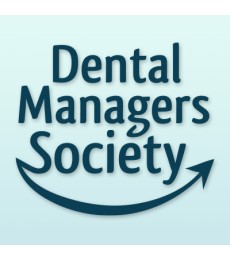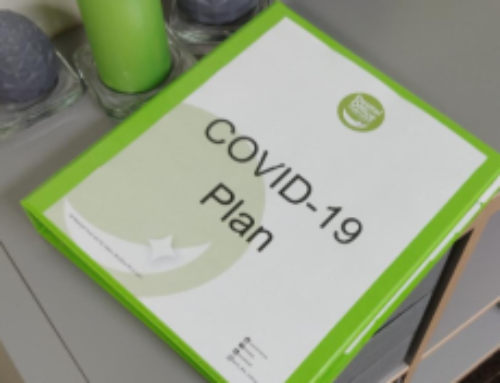Late last night, the Senate passed H.R. 748 known as the “CARES Act.” Although this legislation still needs to be passed by the House on Friday and then signed by the President, it appears it will be enacted without change. Below is an initial summary of the legislation. Please note, the actual guidelines will be issued later and we will provide updates. This is just an initial summary of the changes. We will be sending out additional information as it is available, especially regarding the Paycheck Protection Program which is important relief to provide liquidity to all businesses.
Paycheck Protection Program
Businesses with less than 500 employees may obtain a new “Paycheck Protection Program” loan based on 2.5x average payroll per month and use it for payroll related costs, rent, business mortgage interest, and utilities. To the extent the amount is spent on those items in the 8 weeks following receiving the loan, that portion of the loan will be forgiven. You can obtain these new SBA loans through local banks once in effect and must keep documentation that the proceeds were used for the allowed purposes. The amount of loan forgiveness is reduced if the number of employees or weekly payroll has been reduced.
Practice Tip
This loan program is a substantial benefit – but to maximize the loan forgiveness you need to obtain the Paycheck Protection loan prior to paying payroll. If you are open on an emergency basis only and your wages for the next 8 weeks and your staff will be 25% of what it was in 2019, you may only receive forgiveness on 25% of the loan. If you use the loan to pay all your employees during a shutdown period, you won’t have it won’t have it available as working capital when the business is back to normal. To maximize the benefit from this, you may want to apply for the loan when you are ready to pay payroll for the full staff. Also, you are not disqualified from this loan if you are in the process of doing an existing SBA or state loan.
Emergency EIDL Grants
These are advances on loan applications of not more than $10,000 that can be used for payroll, business loans, and other obligations that cannot be met due to revenue losses.
Delay of Payment of Employer Payroll Taxes
The payment of the employer portion social security taxes will be postponed until 12/31/21 and 12/31/22. You will need to work with your payroll company to administer this.
Practice tip
This is essentially an interest free loan. To make sure you take advance of this, we urge everyone to use a full service payroll company (such as Connectpay, ADP, or Paychex) if you haven’t already because of the difficulty in trying to implement this and other changes.
Recovery Rebates for Individuals
Recovery rebates – Individuals will receive rebates of $1,200 (single), $2,400 (Married filing joint) as an advanced payment of a 2020 tax credit. The credit completely phases out when 2020 AGI is $99,000 (single) or $198,000 (Married filing joint).
Practice tip
Many practice owners will not benefit from this rebate. But your employees will and it will be helpful in providing them liquidity just as the above items will help your business.
Enhanced unemployment
Enhanced unemployment will allow individuals collecting unemployment to receive the normal allowed amount, plus $600 per week
Practice tip
If your employees are collecting unemployment, this will provide additional financial relief and help ensure they are financially able to wait out the office shutdown.
Retirement
Taxpayers don’t need to take a required minimum distribution from an IRA in 2020. Taxpayers affected by COVID-19 may withdraw up to $100,000 penalty-free from an IRA and spread the income over three years. They may repay the balance within 3 years and treat the distribution as a 60 day rollover. Guidelines will be issued to further clarify eligible reasons for distributions.
Practice tip
We urge clients to use other available loans to meet liquidity needs. However, if you need to draw money from an IRA, this provides the ability to meet short term obligations and then put the money back into retirement once you are able to.
Charity
$300 above the line charitable deduction. You will not need to itemize to realize this benefit.
Depreciation
Qualified improvements (eligible leasehold improvements) are depreciated over 15 years instead of 39 years and eligible for bonus depreciation.
State loans
Unrelated to the above legislation, some states have made available their own loan programs. The available funds are being used up quickly which is why we recommending using the federal benefits but these are additional options:
Massachusetts
https://www.empoweringsmallbusiness.org/
Connecticut
https://portal.ct.gov/DECD/Content/Coronavirus-Business-Recovery/CT-Recovery-Bridge-Loan-Program/FAQ
Rosen & Associates, LLP
1800 West Park Drive, Suite 300
Westborough, MA 01581
508-926-2400
Please feel free to forward this to any of your colleagues and peers. All of our previous newsletters can be accessed easily here
https://www.rosendentalcpa.com/resources/taxscriptions/ and everyone can sign up for future ones on our website. www.rosendentalcpa.com We will continue to update you on the best resources for your practice as information becomes available.





